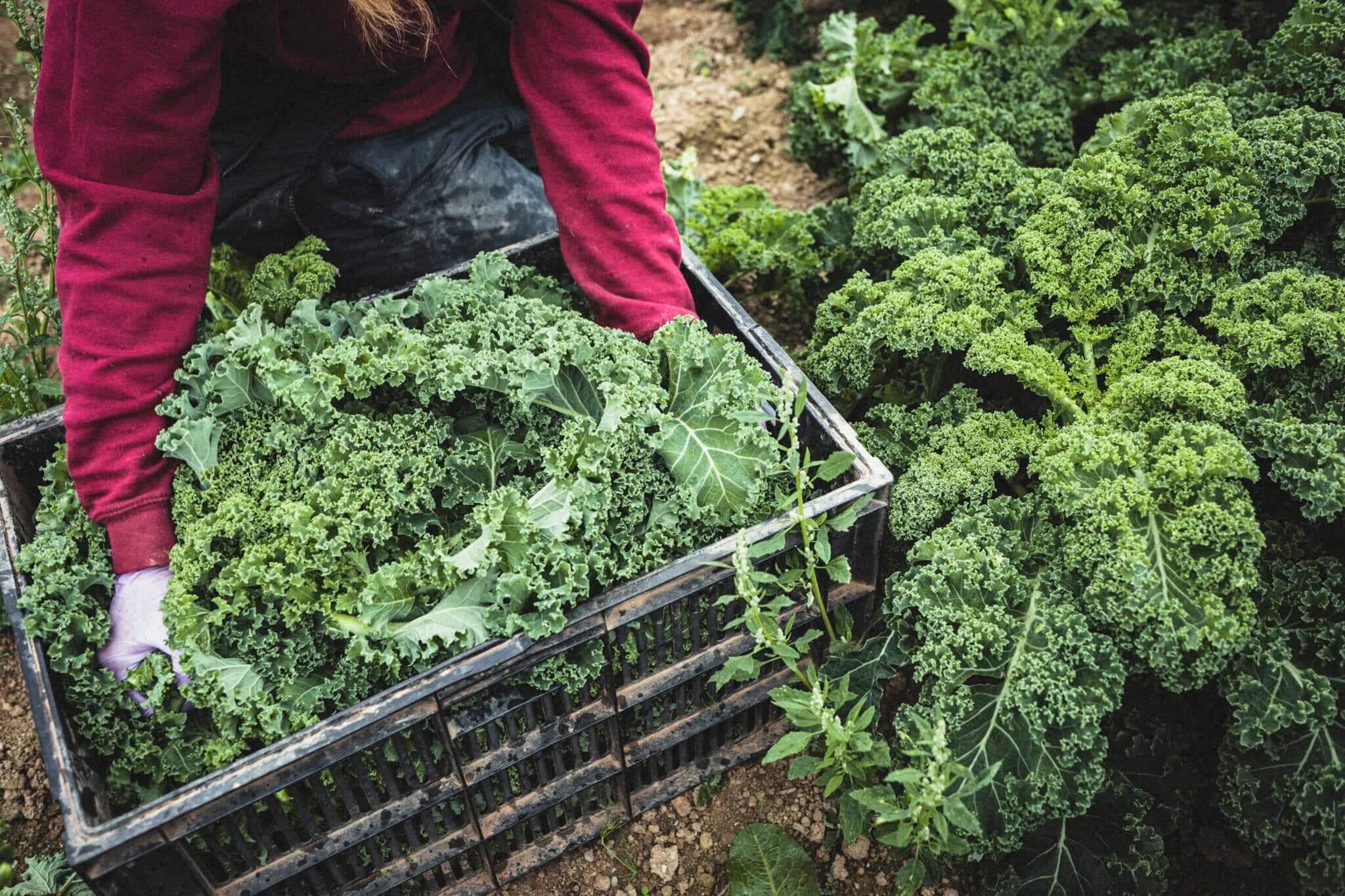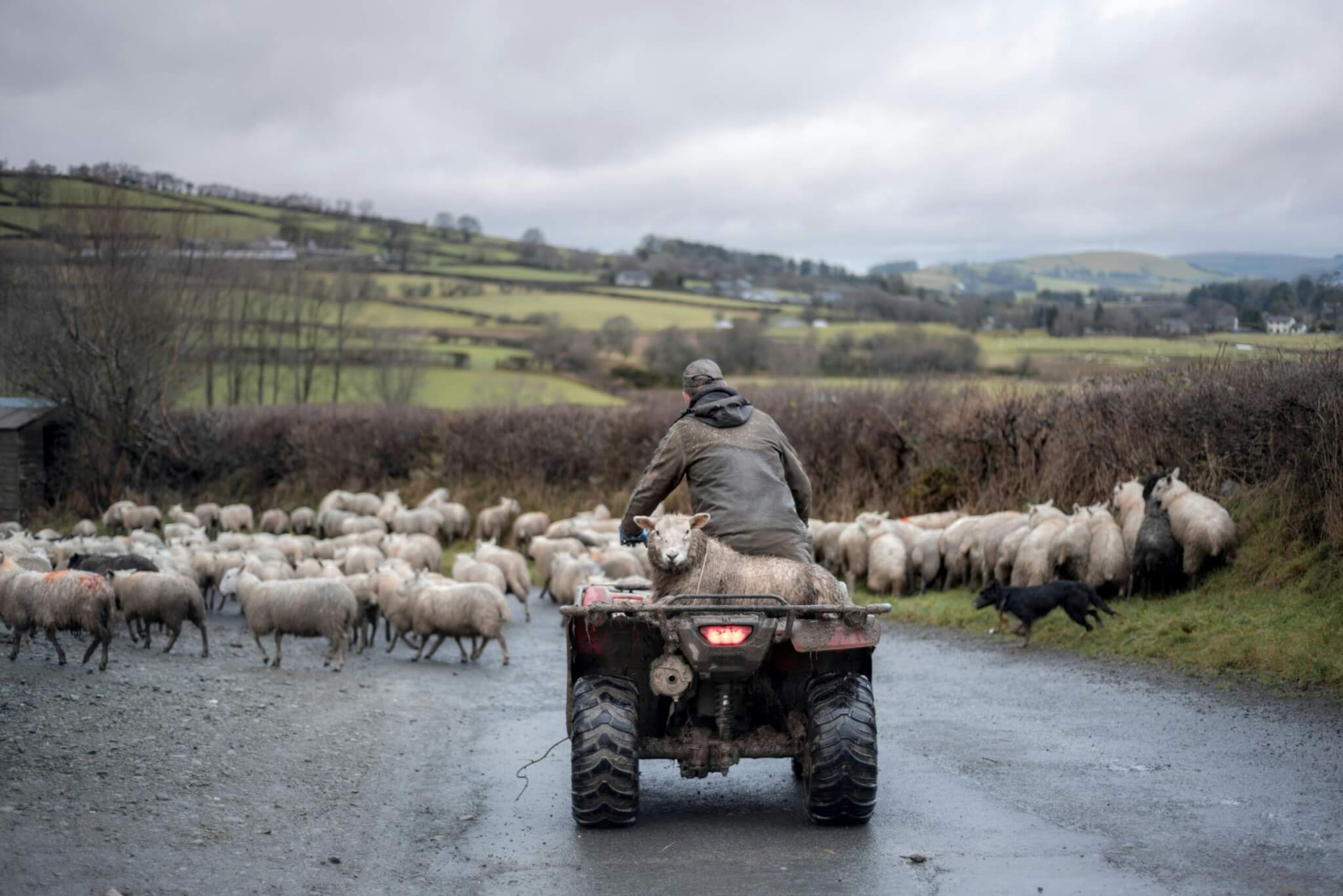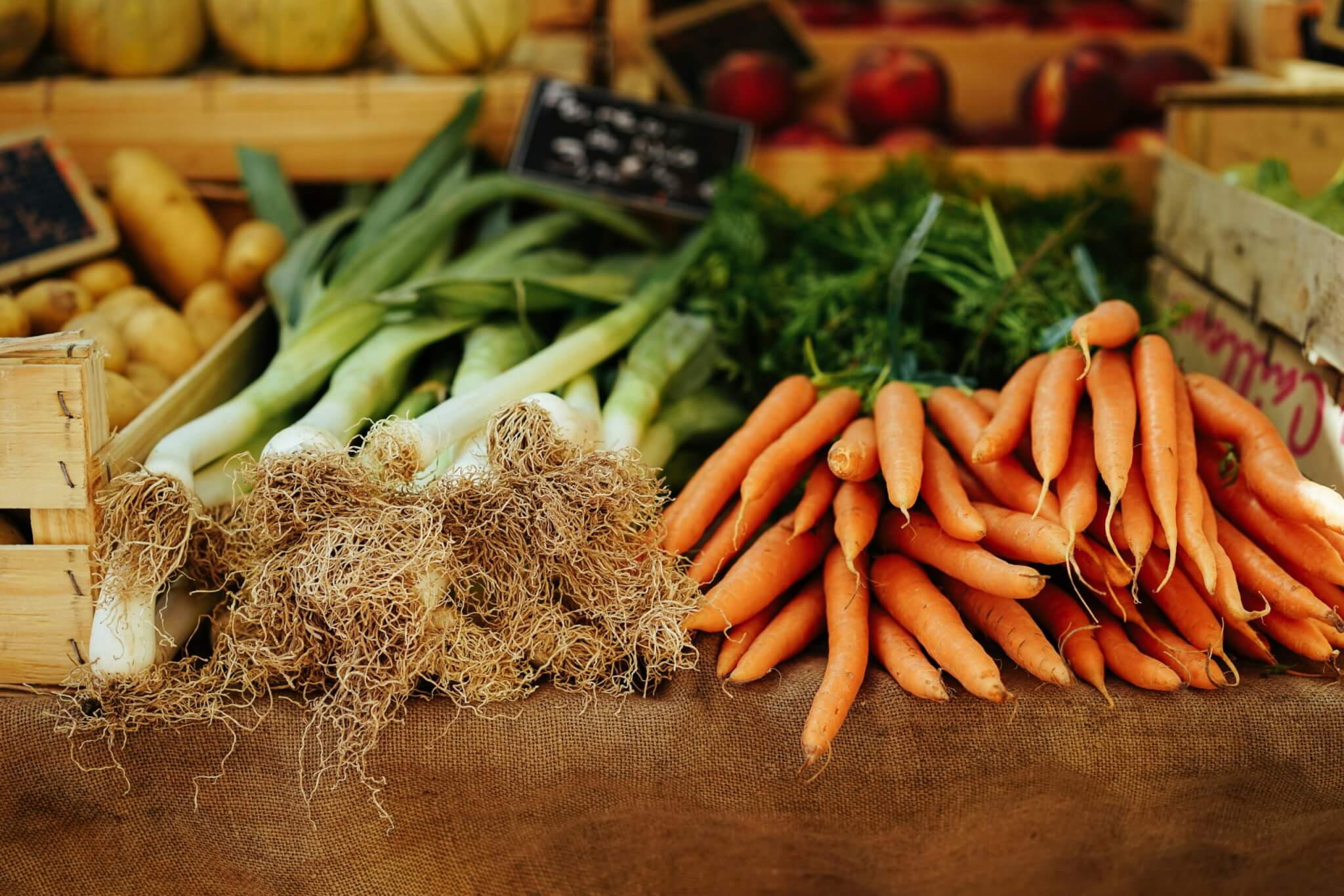You might imagine that January would be a quiet time on the farm, settling back into routine after Christmas. But in fact, it sees us working flat out! In the office, we’ve spent the month busily planning for the new season: selecting varieties, ordering seeds, and scheduling when to plant each crop, in which fields. We’re also looking further ahead – planning new reservoirs to mitigate droughts, and a new software package to help us monitor how the farm is doing, physically and financially.
Out in the fields, it’s also a time of change. In Devon, we’ve just finished picking the loose leaves of green curly kale, and will now go back through the plants, doing the final pick of their heads. This effectively removes the growing point and ends the crop. It’s timely, as curly kale starts to “bolt” (go to seed) by early March, and becomes inedible as the leaves toughen. Savoy and green cabbages are also nearly finished, having matured early thanks to last year’s mild autumn. However, there’s still plenty of leeks ahead, and new plantings of purple sprouting broccoli and spring greens to keep Riverford’s veg boxes full through March and April.
Picking is challenging work, especially in very wet or cold weather. I admire our stoic fieldworkers as they head out, day after day, often staying remarkably cheerful. After a wet start to January, it thankfully went into a drier, colder period, with frosts that haven’t been too hard. The recent sunshine really lifted everyone’s spirits – and Martin and Ed, our harvest managers, have been delivering hot pasties to the fields each week, which are also much appreciated!
Winter is the season for hedge planting. This month, Ed, Becca, and Harriet from Riverford’s Sustainability Team – helped by keen co-owner volunteers – have planted 200 metres of new hedge. The species included hawthorn, blackthorn, hazel, dogrose, spindle, and birch. Given time, this hedge will protect a stream from runoff, while providing a valuable corridor for wildlife to move around the farm.
The year so far has already had its challenges – including a tractor stuck in deep mud on our farm in Cambridgeshire, and 80 mile per hour winds trying to carry our Hampshire polytunnels away. But all in all, we are off to a decent start, and have laid the grounds for the season ahead.













0 Comments